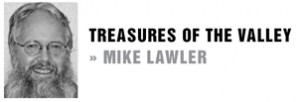The “Big Dig,” a megaproject in Boston that put their mid-city freeway underground, went down as the most expensive highway project in U.S. history. It was sold to the taxpayers in 1982 as costing $2.8 billion, but when taxpayers finish paying it off in 2038, it will have cost a whopping $22 billion! The project was marked by leaks, substandard workmanship and materials, criminal arrests of contractors, and even a cave-in which killed a motorist. And after it was all done, a Boston Globe analysis stated that the final impact of the project was an increase in traffic congestion because of more drivers using the highway.
Well, hang on to your butts, California taxpayers! Caltrans and the Metropolitan Transit Authority want to bring the Big Dig to Los Angeles, on an even grander scale (read that as more expensive!). What we’re talking about here is the completion of the 710 Freeway connector to the 210 in Pasadena. This connection has been fought over for decades, and legal issues have pretty well taken a conventional surface freeway off the table. Thus, the 710 tunnel concept was born.
The idea is to have the 710 go underground north of the 10, and re-emerge at the 210 in Pasadena, for a total tunnel length of about 4½ miles. It would be the longest road tunnel in the U.S., and would punch right through one of the major earthquake faults in L.A. Once complete, it would allow trucks carrying cargo on the 710 from our increasingly busy ports to bypass downtown Los Angeles entirely and use the 210 Freeway through the Crescenta Valley to head north. The MTA, in response to increasing port truck traffic, has called for a major expansion of the 710 from the port to where the proposed tunnel would start. The expansion could include dedicated truck lanes, elevated carpool lanes, and another 10 lanes for general traffic. Imagine all that being funneled onto the 210 through La Crescenta!
In 2008 Measure R (the half cent County sales tax) was passed to provide $40 billion dollars for a mix of mass transit expansion and traffic improvements. The big construction companies, some of the same ones that built the Big Dig in Boston, smell money and have put the pedal to the floor on lobbying efforts to make this tunnel happen. The MTA board, which is responsible for funding this tunnel project, seems enamored with the idea of overseeing such a magnificent engineering feat, the cost be damned. The lone voice of dissent has been Glendale City Councilman and MTA board member Ara Najarian. He alone has questioned the wisdom of funding a project like this which smells like an expensive boondoggle, and of building more freeways at the cost of mass transit solutions.
Amazingly, even though we are now moving forward with the expensive environmental impact studies, no project cost estimate has been produced. Recently, Najarian demanded a cost estimate, and was provided with a figure of $3 billion. Najarian figured out quickly that this figure was for the tunnel only, and didn’t include incidentals like plumbing, electrical, and the complicated ventilation system. The $3 billion figure was classic bait-and-switch with cost overruns, and can be seen as a preview of how this project will be run.
As I said before, the Environmental Impact Review process is already happening, costing $90 million, at a time when most government agencies are broke. A small part of that EIR process is to ask the public their opinion, and it’s vital we weigh in for or against!
This public input meeting is Tuesday night March 22 from
6 p.m. to 8 p.m. at Glendale College. Exit the 2 Freeway at Mountain, and follow the signs that say “710 Conversations” into the upper parking lot. Then follow the maze through the crowds of evening students, and if you actually find the room they’re in, you get water and a cookie! But really – take two cookies. After all, you’re paying for them!

